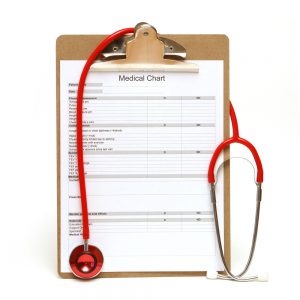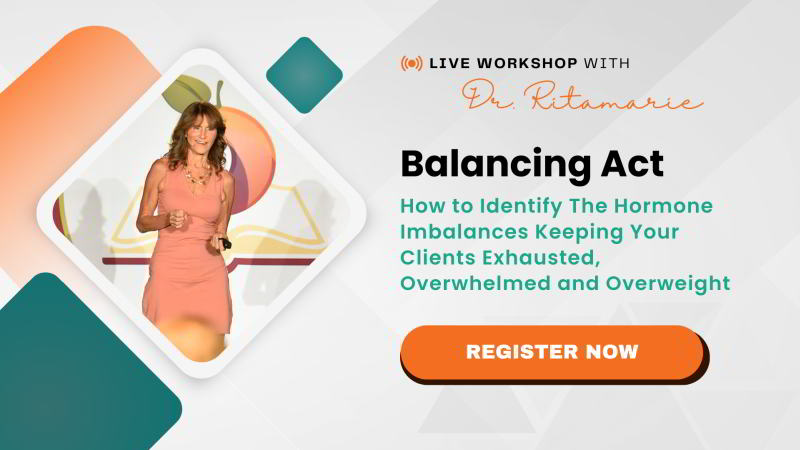Practitioners Corner: The importance of blood sugar testing

Getting your clients to check their blood sugar could literally save their lives. It’s that important.
But what I’ve found from previous programs I’ve taught to practitioners is that many don’t routinely focus on this important baseline test for their clients or even themselves! In fact, in having my practitioner students learn how to test and chart their own blood sugar in various programs I've held, we’ve had many who have self-diagnosed insulin sensitivity issues they didn’t know they had. So it is worth talking a bit about this again.
When was the last time you measured and charted your own blood sugar? And do you understand what your chart is telling you about your own health?
Blood sugar issues such as insulin resistance have serious consequences
Blood sugar problems are about more than increased body fat. Your clients and patients can end up with thyroid and growth hormone deficiencies. They can lack energy and focus. They can have high blood pressure and systemic inflammation, and an increased cancer risk. Blood sugar issues can even create an increased risk of Alzheimer’s. If nothing else scares your clients, the risk of Alzheimer’s should.
Blood sugar problems don’t just happen to overweight people. I had a blood sugar problem (and was at the beginning stages of developing insulin resistance!) at one point in my life, and I was thin and ate healthy!
25% of the US population has issues with their blood sugar! Blood sugar problems often result in insulin resistance, which is like pre-diabetes. Insulin resistance has been estimated to affect one in four in the US – about 68 million people! One in four. That’s 25% of the population.
Blood sugar is often the underlying cause of your client's symptoms. And I find that in my own practice that blood sugar issues such as insulin resistance is the underlying cause of more than 50% of the cases I see… and the cases are all over the map, with a multitude of different presenting symptoms. But with a common underlying cause…blood sugar.
And the sad thing is that blood sugar testing isn’t difficult!

People making the necessary lifestyle changes can reverse insulin resistance issues and reduce their risk for disease, as well as achieve a clear mind, energetic body and a flat belly.
If you don’t know how to test your own blood sugar you need to start there! Purchase a glucometer online at Amazon.com or at your local pharmacy. This is the one I use myself and also recommend has unfortunately been discontinued. It's called True 2 go, and was discontinued per FDA mandate because there is potential for people on Insulin and one of a few medications that contain sugars similar to blood glucose may cause a falsely high reading, and cause people to take too much insulin.
The others I have found to be fairly good are the Bayer Contour, the Dario and the One Touch Ultra Mini. All are available on Amazon as well as other online retailers.
Coach your clients to keep their fasting blood sugar in the 70’s or 80's and postprandial blood sugar (after eating) at 110 or below for best results.
Master the art of blood sugar testing to monitor your own health…and also so that you can teach it to your patients and clients.
Insulin Resistance Solution Practitioner’s Training – Putting it all together for your clients!
Getting your clients and patients to test their blood sugar is only part of what you need to do. You also need to know what the patterns mean relating to their charted measurements. AND of course, you need to understand how to work with your clients to reverse their problems.
That’s why I’ve created my Insulin Resistance Solution Practitioner’s Training (IRSPT).
It is a comprehensive training to help you become knowledgeable and proficient at helping people:
- Gain control over their blood sugar issues,
- Learn lifestyle changes to reverse insulin resistance;
- Address metabolic syndrome disorders,
- Successfully manage diabetes,
- And most importantly, help your clients feel better and improve their overall health!
You’ll learn the strategies, tools and insights necessary to become the “go-to” practitioner who can easily handle blood sugar issues, in particular insulin resistance issues.
COMMENT BELOW: Do you use glucose testing in your practice? If not are you open to giving it a try?








Hi Ritamarie. With the explosion that we’re seeing with diabetes and pre-diabetes it is dumbfounding why we don’t screen for blood sugar issues much more than we do. This needs to be part of a routine workup. If a practitioner has a patient that they aren’t familiar with their blood sugar with, this is a clear oversight, and this is not a disease that we ever want to wait until a patient shows symptoms to diagnose.
By the time blood sugar even starts going up, people have disorders of blood sugar regulation for many years, and this is actually not the time we want to become aware of them. Insulin testing is what we really want to be doing to screen, although what’s behind the curtain is scary stuff indeed, as the majority of people suffer from high insulin levels, and high insulin levels are very, very unhealthy, in spite of the ignorance that most practitioners have about it.
So what do you do when someone has high insulin levels? Well the cornerstone of the treatment is of course dietary modification, and we’ve become a species of carb hogs, and it’s no wonder this happens. So this starts by becoming aware of what happens with high insulin, the diabetes, the vascular disease, the high blood pressure, the kidney damage, the significantly higher cancer risk, and especially the obesity, and high insulin especially drives obesity.
Then you screen people and then start providing dietary education, and we have to learn about that as well because dietary professionals sure don’t, their goals are to chase myths such as reducing fat intake and the like, which makes the problem worse not better.